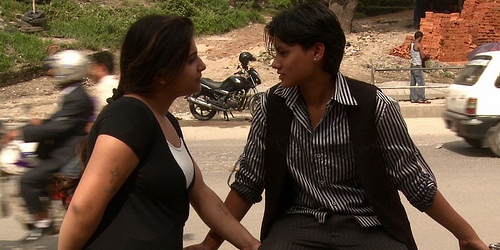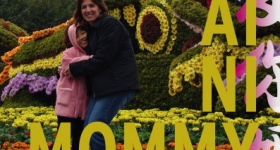Nani Sahra Walker's documentary Other Nature (2010) follows several Nepalese activists in their fight to include LGBTQ rights under Nepal's new democracy. In 2008, after transitioning out of centuries of monarchy, Nepal was the most recent nation to become a federal republic, which included an effort to write a constitution incorporating the needs of its citizens. While Nepal's Supreme Court has been the first in the world to recognize "third gender" (a category originated by advocates in Nepal's LGBTQ movement), implementation by the government, as well as societal attitudes, have been slow on the uptake.
Kicked out of schools and by their families, shunned by society, and unable to find jobs, many of third gender must turn to manual labor or sex work for survival, where they endure harassment and police brutality. Subjects filmed include transgender activists Bhumika and Badri, a runaway lesbian couple from Delhi, a cadet kicked out of military academy on grounds of "homosexual conduct", and the founder of third gender support group Blue Diamond Society (named after the European usage of "blue" as code for "gay", and Buddhist and Hindu references to saints as "diamond beings").

In fact, the presence of religion is a significant aspect of the film, with lengthy scenes of third gender folks worshipping at both Hindu and Buddhist temples across Nepal. There is a conspicuous absence of conflict -- internal or external -- between practice of spirituality and sexual/gender orientation, the former of which we often see invoked as a justification for discrimination. The only example present in the film was one Hindu priest/astrologer who believes homosexuality "will put an end to civilization". However a counter-example was also shown of a Buddhist nun expressing support for LGBTQ equality.
With lush footage of Nepal's countryside and candid, engaging portraits of third gender individuals, Other Nature beatifully captures the efforts of this community for recognition of same-sex marriage, third gender citizenship, and equal protection under the law. The film also illustrates that -- although the setting may be unique -- LGBTQ communities worldwide face similar challenges and share a common fight for equal rights.










Comments